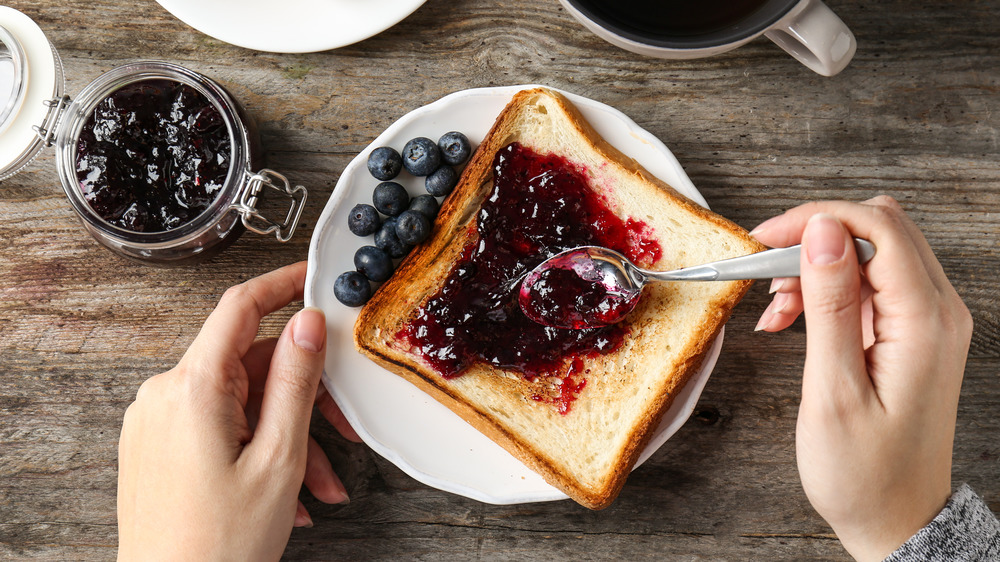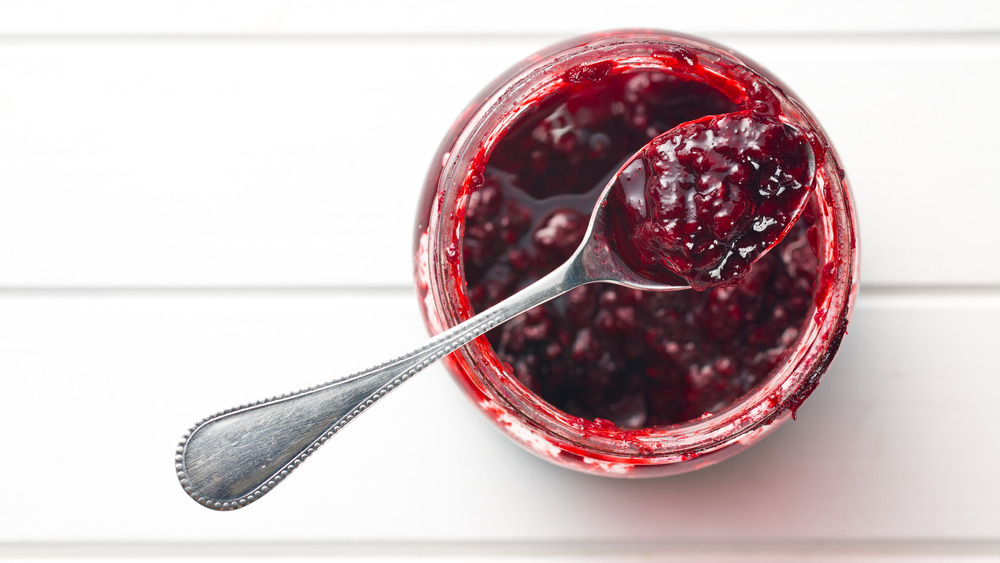How To Tell If The Jam You Just Bought Is Bad For You
The only thing that makes a piece of butter-soaked toast better in the mornings is a thick layer of jam smeared on top. There's something about the gooey sweet spread paired with the salty butter and the crispy crunch of the bread that has us reaching for slice after slice (and spoonful after spoonful). And with so many flavors available — raspberry, strawberry, blueberry, peach, apricot, grape, just to name a few — jam is one of those condiments that never gets old.
But while it may be delicious, is the popular breakfast topping actually healthy? That depends on what kind you buy, experts at Weight Watchers say, as not all jams are created equal. Here's how to tell if the jar you're eyeing up at the store is good for you and what you should look for before you slather it all over your toast tomorrow morning. Hint: It's all in the nutrition label.
When it comes to jam, you'll want to avoid these two ingredients
What makes some jams and jellies healthier than others? It all comes down to what ingredients they contain (or more importantly, don't contain). According to Weight Watchers, there are two primary offenders on your jar's nutrition label: corn syrup and cane sugar. Both of these ingredients add a lot of sugar to an already sweet spread and with that added sugar comes added calories, as well. Harvard Health warns that consuming too much added sugar on a regular basis can also lead to long-term health issues, including weight gain, diabetes, and heart disease.
If you're looking for a lower-sugar, lower-calorie jam, Weight Watchers notes that artificially sweetened options will have the least calories. However, they can also have a slightly different flavor. Blogger Happy Healthy Mama recommends Costco's Kirkland Organic Strawberry Jam, which she says avoids the after-taste of artificial sweeteners yet has less added sugar than other brands.

